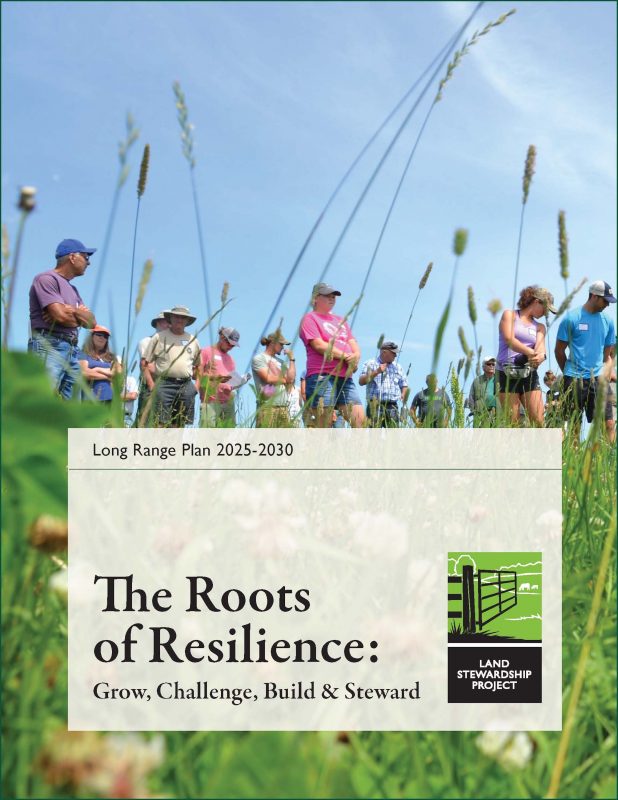LEWISTON, Minn. — The Land Stewardship Project (LSP) today released a strategic plan that describes how, during the next five years, the Minnesota-based organization will work with its members and allies to support the next generation of farmers and drive rural economic revitalization via community-based food systems, as well as help farmers adopt soil health practices that are profitable and that bolster climate resilience. The plan also lays out how LSP will work with groups led by people of color to organize around racial justice issues while pushing for fair market access for small and medium-sized farmers and fighting consolidation and the corporate-controlled industrialization of agriculture. 
The plan — “The Roots of Resilience: Grow, Challenge, Build & Steward” — is the result of months spent gathering input from LSP members, supporters, allies and staff on organizational priorities. The final document was recently approved by LSP’s board of directors and lays out four interconnected strategies for the organization: Grow, Build, Challenge and Steward. Within each focus area, LSP has outlined outcomes it will be working to obtain via grassroots organizing in rural communities throughout the region. Many of these goals build on long-term areas of work for LSP while others represent new frontiers for the membership-based nonprofit, which was launched 43 years ago during the depths of the 1980s Farm Crisis as an organization dedicated to fostering an ethic of stewardship for farmland, promoting sustainable agriculture and developing healthy communities in the food and farming system. LSP has offices in the Minnesota communities of Montevideo, Lewiston and South Minneapolis.
“As one of youngest members of LSP’s Long Range Plan Committee, what excites me most about this strategic plan is how it will continue to build on the collective work, the values and the vision of the organization,” said LSP farmer-member Josie Trople of Northfield, Minn. “By focusing on mutual values and common ground that we hold as farmers, land stewards and community members, together we will create a better future for our rural communities. This plan helps us move toward just that.”
Besides describing the areas LSP will focus on from now until 2030, the plan provides examples of successes the organization has had since its last five-year plan was launched in 2019. During the past five years, LSP has worked with its members and allies to make significant advances in the areas of beginning farmer training, building soil health/climate resilience, advancing community-based food systems and fighting for the rights of local communities to maintain local democracy.
“I really encourage people to read this plan. I think it is bold, ambitious and achievable, which is just what we need right now,” said Scott Elkins, LSP’s executive director. “And we are already bringing this plan to life, rolling up our sleeves and working with our farming and rural neighbors. Together we are creating an abundant future with clean water, healthy food, thriving farms and vibrant rural communities.”
A digital copy of “The Roots of Resilience” is available at landstewardshipproject.org/lrp. Print copies are available at LSP’s offices in Lewiston, Montevideo and Lewiston, or by calling 612-722-6377.
-30-